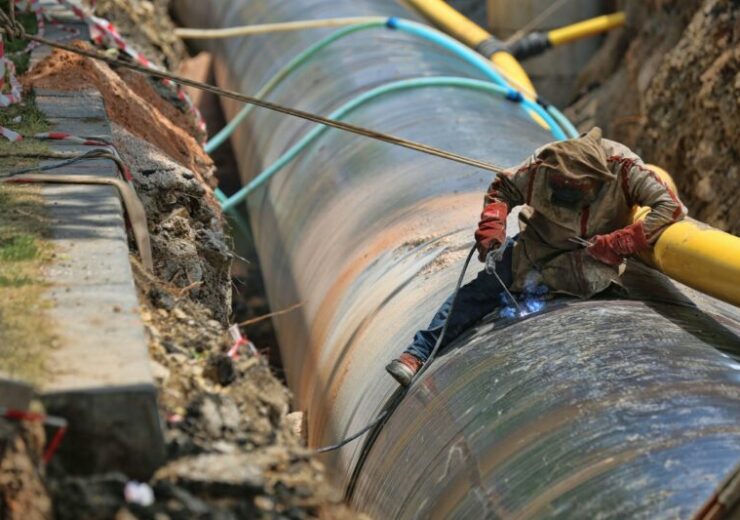Originally estimated to cost $3.5bn, the pipeline project will procure crude oil from Uganda’s oil fields in Kabaale in Hoima district and transport them to the Chongoleani peninsula near the Tanzanian port of Tanga

The East African crude oil pipeline is planned to be built between Uganda and Tanzania. (Credit: SELİM ARDA ERYILMAZ on Unsplash)
The Ugandan government has secured support from the African, Caribbean, Pacific -European Union (ACP-EU) for proceeding with the East African crude oil pipeline project (EACOP), a 1,443km long pipeline to be laid between Uganda and Tanzania.
The support came through a favourable vote at the ACP-EU joint parliamentary assembly sitting in Maputo, Mozambique.
Originally estimated to cost $3.5bn, the East African crude oil pipeline project will procure crude oil from Uganda’s oil fields in Kabaale in Hoima district and transport them to the Chongoleani peninsula near the Tanzanian port of Tanga. After reaching Tanzania, the crude oil is shipped for refining abroad.
According to the Ugandan Parliament, Deputy Speaker Thomas Tayebwa led the country’s delegation to the Maputo meeting where he convinced the ACP-EU joint parliamentary assembly about the project.
Tayebwa is said to have got acceptance from the members for allowing a “just transition to renewable energy” as opposed to the abrupt stopping of explorations, particularly by the global south.
In a statement, Tayebwa termed the amendment, saying: “A big win for Uganda; the Ugandan delegation burnt the midnight candle to get to this achievement.”
The ACP-EU had earlier taken a hard stance against new oil fields. However, it is said to have adjusted its stance and acknowledged the significance of fair phasing out and gradual transition from fossil fuels to renewable energy.
Furthermore, the ACP-EU stressed that to achieve the target of 1.5°C, drastic scaling up of renewable energy is needed along with backing a global just transition.
The position taken by the ACP-EU contests the previous stance of the EU Parliament, which had passed a resolution to completely defeat the concept of the East African crude oil pipeline project.
The EU Parliament had voiced its serious concern about alleged human rights violations in Tanzania and Uganda, linked, to the $10bn Lake Albert upstream project in Uganda.
Expected to have a transportation capacity of 216,000 barrels of crude oil per day, the East African crude oil pipeline will traverse 296km in Uganda, and 1,149km in Tanzania.
